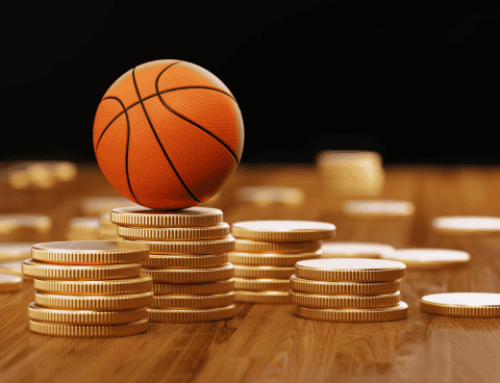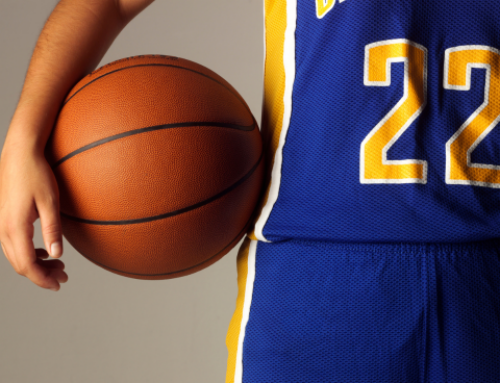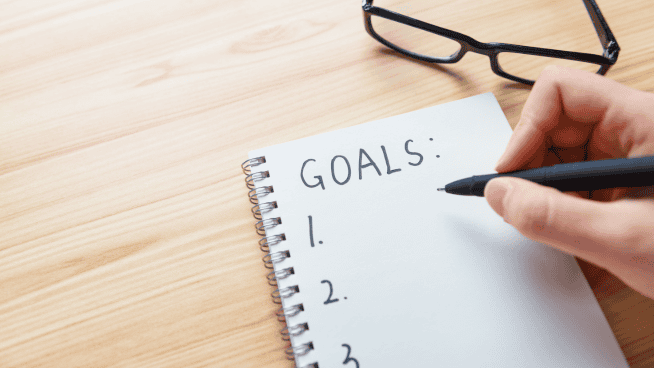10 Tips for Balancing SAT Prep With School and Sports
Preparing and studying for the SAT and the ACT often elicits images of sitting at a desk, staring at test prep books, and sloughing time until bedtime. No one wants to study for these tests, especially with all the other priorities and duties that occupy a student’s time such as sports, extracurricular activities, homework, and other normal studying. Tacking extra study time for a collegiate entrance exam seems daunting and nigh on impossible, but utilizing even a few of these tips can help on the journey to that high score!
Where to Start
If one attempts to study for nothing, one will inevitably achieve nothing. That goes for studying for the SAT/ACT without any goal or target score in mind. The best way to go about deciphering what target score to study for will vary per student but googling the average scores of the schools the student is interested will give a good gauge of where to aim while studying.
From there, a student should take either a real or a practice SAT/ACT to determine where to start studying. For instance, if the student scored a 1000 on the SAT and needs 1200, that student would need to study for around 40 – 80 hours in order to fully prepare to improve at such a jump. More estimated hours of study can be found here.
Tips for All Students
Come Up with a Plan:
Adhering to a schedule will better allow a student to be able to balance all his/her duties to be able to prepare for the SAT/ACT. Have the student begin with what time they will wake up and go from there.
A sample general plan based upon the need to study 40 – 80 hours as per the student above could be:
- 6:00 a.m.: Wake up
- 7:00 a.m. – 2:30 p.m.: School
- 3:00 p.m. – 5:00 p.m.: Homework
- 5:00 p.m. – 6:00 p.m.: Relaxation time
- 6:00 p.m. – 7:00 p.m.: Dinner
- 7:00 p.m. – 9:00 p.m.: SAT/ACT prep
- 9:00 p.m. – 10:00 p.m.: Relaxation time
- 10:00 p.m. – 6:00 a.m.: Sleep
A student adhering to this schedule for 4 to 8 weeks should fully prepare for the jump needed in target score. This plan, however, is dynamic and can always be adjusted as the student’s needs diversify.
Relaxation and Fun:
Students often neglect downtime and blocks just to be themselves. They become obsessed with the “perfect score” that leads only to detriment. As with the body’s muscles, the brain builds during recovery after a strenuous exercise regimen of studying vocabulary, mathematics, and grammatical arguments.
Rewards:
Students should reward themselves with blocks of time to listen to music, watch television, hang out with friends, indulge in a favorite treat, etc., for a job well done in test preparation. These rewards can be tier-based upon smaller goals for motivation, such as achieving an increased score of 10 points on a practice SAT/ACT.
Tips Exclusive to Athletes
Athletes often have more responsibilities than students without sports or other extracurricular activities. School-sanctioned sports often take up at least two hours of a scholar athlete’s day. That being said, an athlete should follow all the above tips and some more specific to an athlete’s day.
Homework during school:
Being proactive with homework during school hours will aid in overall studying. A student may have to be on the lookout for times to complete homework during the school day, but there should be some blocks to eke out some time.
For instance, a student could work on math homework as the teacher is going over the material or even in another class if a review is conducted. Time blocks will make themselves apparent, it is up to the athlete to take advantage of them.
Make Studying into a Game:
Athletes perform best under pressure. Making studying into a game such as studying while throwing the ball, shooting hoops, or even rapid-fire question and answer lightning round style can mimic the adrenaline summoned during a sports event. Athletes are often kinesthetic learners and games often help them most learn information.
Long-Term Impact
Students only need to remember that the SAT/ACT is not a test one can simply cram for the next day. Only long-term studying will lend to improvements in scores. And, for athletes, akin to practicing year-round, only early studying can help improve scores.
Click here for PrepScholar article.
RECOMMENDED FOR YOU
MOST POPULAR
10 Tips for Balancing SAT Prep With School and Sports
Preparing and studying for the SAT and the ACT often elicits images of sitting at a desk, staring at test prep books, and sloughing time until bedtime. No one wants to study for these tests, especially with all the other priorities and duties that occupy a student’s time such as sports, extracurricular activities, homework, and other normal studying. Tacking extra study time for a collegiate entrance exam seems daunting and nigh on impossible, but utilizing even a few of these tips can help on the journey to that high score!
Where to Start
If one attempts to study for nothing, one will inevitably achieve nothing. That goes for studying for the SAT/ACT without any goal or target score in mind. The best way to go about deciphering what target score to study for will vary per student but googling the average scores of the schools the student is interested will give a good gauge of where to aim while studying.
From there, a student should take either a real or a practice SAT/ACT to determine where to start studying. For instance, if the student scored a 1000 on the SAT and needs 1200, that student would need to study for around 40 – 80 hours in order to fully prepare to improve at such a jump. More estimated hours of study can be found here.
Tips for All Students
Come Up with a Plan:
Adhering to a schedule will better allow a student to be able to balance all his/her duties to be able to prepare for the SAT/ACT. Have the student begin with what time they will wake up and go from there.
A sample general plan based upon the need to study 40 – 80 hours as per the student above could be:
- 6:00 a.m.: Wake up
- 7:00 a.m. – 2:30 p.m.: School
- 3:00 p.m. – 5:00 p.m.: Homework
- 5:00 p.m. – 6:00 p.m.: Relaxation time
- 6:00 p.m. – 7:00 p.m.: Dinner
- 7:00 p.m. – 9:00 p.m.: SAT/ACT prep
- 9:00 p.m. – 10:00 p.m.: Relaxation time
- 10:00 p.m. – 6:00 a.m.: Sleep
A student adhering to this schedule for 4 to 8 weeks should fully prepare for the jump needed in target score. This plan, however, is dynamic and can always be adjusted as the student’s needs diversify.
Relaxation and Fun:
Students often neglect downtime and blocks just to be themselves. They become obsessed with the “perfect score” that leads only to detriment. As with the body’s muscles, the brain builds during recovery after a strenuous exercise regimen of studying vocabulary, mathematics, and grammatical arguments.
Rewards:
Students should reward themselves with blocks of time to listen to music, watch television, hang out with friends, indulge in a favorite treat, etc., for a job well done in test preparation. These rewards can be tier-based upon smaller goals for motivation, such as achieving an increased score of 10 points on a practice SAT/ACT.
Tips Exclusive to Athletes
Athletes often have more responsibilities than students without sports or other extracurricular activities. School-sanctioned sports often take up at least two hours of a scholar athlete’s day. That being said, an athlete should follow all the above tips and some more specific to an athlete’s day.
Homework during school:
Being proactive with homework during school hours will aid in overall studying. A student may have to be on the lookout for times to complete homework during the school day, but there should be some blocks to eke out some time.
For instance, a student could work on math homework as the teacher is going over the material or even in another class if a review is conducted. Time blocks will make themselves apparent, it is up to the athlete to take advantage of them.
Make Studying into a Game:
Athletes perform best under pressure. Making studying into a game such as studying while throwing the ball, shooting hoops, or even rapid-fire question and answer lightning round style can mimic the adrenaline summoned during a sports event. Athletes are often kinesthetic learners and games often help them most learn information.
Long-Term Impact
Students only need to remember that the SAT/ACT is not a test one can simply cram for the next day. Only long-term studying will lend to improvements in scores. And, for athletes, akin to practicing year-round, only early studying can help improve scores.
Click here for PrepScholar article.
RECOMMENDED FOR YOU
Create A Free Recruiting Profile Today!
CaptainU helps athletes & parents not only be proactive but also to manage and take control of their entire recruiting journey.











